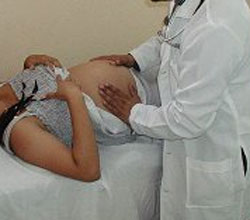
Top stories





Marketing & MediaBehind the campaign: Reframing fairness in ride-hailing: The inDrive success story
inDrive 6 hours

More news





















Professors David Paton and Sourafel Girma used local health authority data to study the impact that the introduction of Government-backed schemes to offer emergency birth control at pharmacies and without prescription have had on conception rates and the diagnosis of STIs among under-18s.
Their findings show that, on average, areas operating a pharmacy emergency birth control (EBC) scheme saw an overall increase of 5% in the rate of STIs among teenagers - 12% in the under-16s age group. The study also found that EBC schemes may actually be associated with a small increase in the number of teens falling pregnant.
Increased access to EBC has been a key part of the Government's Teenage Pregnancy Strategy which was introduced in 1999 and aimed to halve teenage pregnancy rates by 2010. However, as funding and implementation was devolved to local levels, local health authorities have been able to decide on whether to devote money to increasing access to EBC.
Specifically, since the start of 2000, local authorities in England have been encouraged to introduce scheme that offer EBC free of charge, over the counter at pharmacies to teenagers under the age of 16. Although an increasing number of local authorities have introduced schemes, they have come into force at different times and some have decided against it altogether.
Historically, a number of studies have been conducted looking at the impact of easier access to contraception and legalising abortion and a review of 23 of these reports in 2007 revealed that none found any significant decreases in unwanted pregnancies or abortion rates.
The Nottingham researchers, who are economists in the Nottingham University Business School, aimed to test the assumption that providing emergency contraception for free to teenagers could lead to an increase in risky sexual behaviour, potentially leading to an increase of STIs as sexual partners substitute the morning after pill for condoms and cancelling out any benefits from an increase in the number or people using emergency contraceptives.
The study looked at all teenage pregnancies, and two sub-groups of under-18s and under-16s, between 1998 and 2004 using data obtained from the Office of National Statistics.
To measure STIs, the researchers used data on the number of diagnoses of the main STIs at genitourinary medicine (GUM) clinics, provided by the Health Protection Agency, in the same age groups (apart from under-18s for which STI data are not available).
These were compared to a control group of women aged over 24, who did not have access to pharmacy EBC schemes.
The study found that teenage conception rates showed a downward trend from a peak in 1998 (two years before the pharmacy EBC scheme started, a year before the Teenage Pregnancy Strategy) until 2003, followed by a small increase in 2004, just as the EBC scheme reached its peak.
In terms of STIs, the rate for teenagers and older women both increased consistently over the period. However, rates among teenagers increased at a faster rate and there is some evidence that the gap with rates among older women widened as the EBC schemes progressed.
It found that the EBC schemes had no effect in reducing teenage conception rates and even some evidence that pointed to a small increase in the number of pregnancies.
The presence of an EBC scheme in a local health authority was linked to a 5% increase in STIs in the under-18 age group and a 12% hike in under-16s.
The researchers warned that as the figures only show the number of diagnoses at GUM clinics, rather than the total number of infections of illnesses which can in some cases be asymptomatic.
Professor Paton commented, "Our study illustrates how government interventions can sometimes lead to unfortunate unintended consequences. The fact that STI diagnoses increased in areas with EBC schemes will raise questions over whether these schemes represent the best use of public money."
Source: University of Nottingham